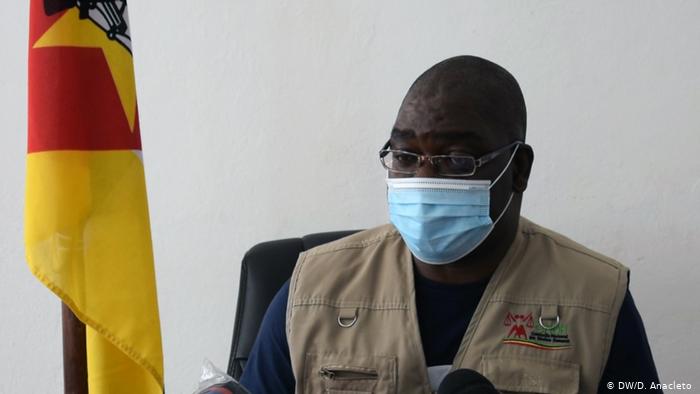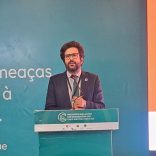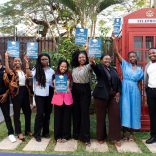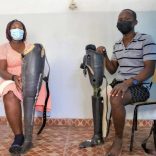Mozambique: Spain pledges support for primary health care
Cabo Delgado: Fighting “makes it impossible” to investigate human rights abuses

"There are no conditions to carry out further investigations.". [Photo: DW]
In an interview to DW, the president of the National Commission on Human Rights says that, at this moment, it is impossible to investigate allegations of abuse in northern Mozambique. Videos on social media are a starting point, but insufficient on their own.
The president of Mozambique’s National Human Rights Commission (CNDH), Luís Bitone, advocates the creation of corridors, to allow researchers to access conflict areas in the north of the country. In the meanwhile, he believes that, at this moment, it is impossible to investigate the complaints on the ground due to the lack of security conditions. “It is an area that is not easy to access. Right now, there are no conditions for us to carry out further investigations,” he says in an interview with DW Africa.
Bitone says that the videos of alleged atrocities committed in the north of the country circulating on social media are “essential for future research”, but “are not evidence in themselves”, because “we are in an era of disinformation”. “We have situations, for example, of Defence and Security Forces [FDS] uniforms that are targeted in the process,” he notes.
Bitone underlines that, despite the difficulties, the Mozambican authorities do not need external help to conduct independent investigations. Last week, the European Commissioner for International Partnerships, Jutta Urpilainen, called on Mozambique to conduct a “transparent and effective” investigation, describing as “extremely shocking” the recent Amnesty International report that asks for an investigation on the FDS involvement in human rights violations in the province.
The CNDH president also dismisses the creation of an independent commission, as advocated by some analysts and members of Mozambican civil society, and maintains that the National Commission must investigate those responsible for the atrocities. “Asking for support means showing incapacity, showing that we are unable to investigate or that we are prohibited from doing so,” he says.
DW Africa: Does the National Human Rights Commission support the creation of an independent commission to investigate violations in Cabo Delgado?
Luís Bitone (LB): What we advocate, as a Human Rights Commission, is the dispatch of independent investigative bodies or commissions to the field. We are not advocating the creation of a new commission, not least because, at country level, we have independent research institutions for these types of human rights issues.
The National Human Rights Commission is an independent body created by law to carry out this type of investigation and to monitor human rights situations. We also have the Ombudsman of Mozambique, which is an independent body with the mission of guaranteeing citizens’ rights regarding the performance of public administration. And we also have the Attorney General’s Office [PGR], which is also guided by the principles of independence and equidistance. So we are not advocating the creation of any new commissions, but the creation of corridors that allow these independent research institutions to carry out their work on the ground.
DW Africa: How can these corridors be established and how can researchers be guaranteed safe access to these areas?
LB: This is the challenge, because we are talking about areas where the civil administration is no longer functioning, such as Mocímboa da Praia and Macomia. So the appeal is that, as soon as we have the basic conditions, this work should be carried out immediately.
At this moment, we know the difficulty of guaranteeing peace and tranquillity in those areas, which are not easy to access. Our appeal is simply that, as soon as the conditions are created for the exercise of the mandates of the civil authorities, we are immediately informed, so as to be on the spot and conduct our independent investigation.
DW Africa: Given these difficulties, will international aid be necessary for Mozambique to be able to conduct investigations on the ground?
LB: Right now, we are not thinking about this, because we were not forbidden to investigate. Within our mandate, we travel to the places where this investigation is possible. We are just not being able to travel to where the conflict is taking place.
Asking for support means showing incapacity or inability to investigate, or that there is some kind of prohibition. At this time, no one has forbidden us to exercise our mandate. I think that an international commission would have the same difficulty as we do, which is accessing places of conflict. At this time, there are no conditions for us to carry out further investigations. Therefore, it is not appropriate to ask for international support.

Mozambican institutions, such as the [National Human Rights] Commission, the Attorney General’s Office (PGR), the Ombudsman and others, have difficulty accessing places, not because someone is forbidding them, but because of the safety of their staff and commissioners. The locations are full of intense fighting and very serious military situations, which do not allow civilian authorities to do their job normally. All civilian authority has left the area – the Public Prosecutor’s Office, the courts, health and education services. So the zones are under military authority only. At the moment, civilian authorities are in the neighbouring districts waiting for the situation to normalise.
DW Africa: Is the National Human Rights Commission already investigating the violations that are occurring in Cabo Delgado by other means, or, so far, this has not been possible due to security conditions?
LB: Right now, we are dealing only with [elements] away from the theatre, because at the end of July, our purpose was to investigate the conditions of those displaced to Cabo Delgado, Nampula and Niassa.
The second issue is exploring some of the complaints and videos that we have about the actions of both insurgents and the Defence and Security Forces and to confront this material with reality.
But it was not possible to enter the areas where these videos were supposed to have been made. This means that, at this moment, we are gathering information from outside of where the events occurred, waiting for the opportunity to go, so that we can access the places where the suspicions originate.
We have already started investigating some cases, such as the disappearance of a journalist in June, and we have already started talking to the judicial authorities and the Public Prosecutor’s Office. There is an open case in this regard, but it will be very difficult to reach conclusions at this point, because it is necessary to go to the scene, interview witnesses and collect material in order to reach our conclusions.
DW Africa: However, there is no end in sight for the conflict. In fact, it is not possible to predict when the civil authorities will be able to carry out their work.
LB: It is not possible, because it is a conflict and conflict is not subject to dates. So, there is no way of knowing whether it will be next month or two months from now. We are waiting for an opportunity, because we are interested in what is happening. Videos that circulate arousing suspicions are one thing, but it is another thing to know exactly who is responsible and whether it is opportunism or propaganda. But for us, as a Commission, everything that circulates is essential for future research. They are not evidence in themselves, because we are in an era of disinformation. So we must not jump to conclusions.
DW Africa: With regard to videos circulating on social media, has the Commission still not reached any conclusions?
LB: It is difficult to reach a conclusion. The commission has already received several videos from the media and social networks, but these are very biased. Each party accuses the other of atrocities. We are talking about an era of misinformation in which videos can be doctored. But the videos are important, because they are crucial elements for starting our investigation. We have situations, for example, of FDS uniforms that are targeted in the process. But in the past, we have already seen situations of insurgents riding in FDS vehicles, using various signals from the security forces. So, the videos themselves are not enough, but they are starting points for further investigation.












Leave a Reply
Be the First to Comment!
You must be logged in to post a comment.
You must be logged in to post a comment.